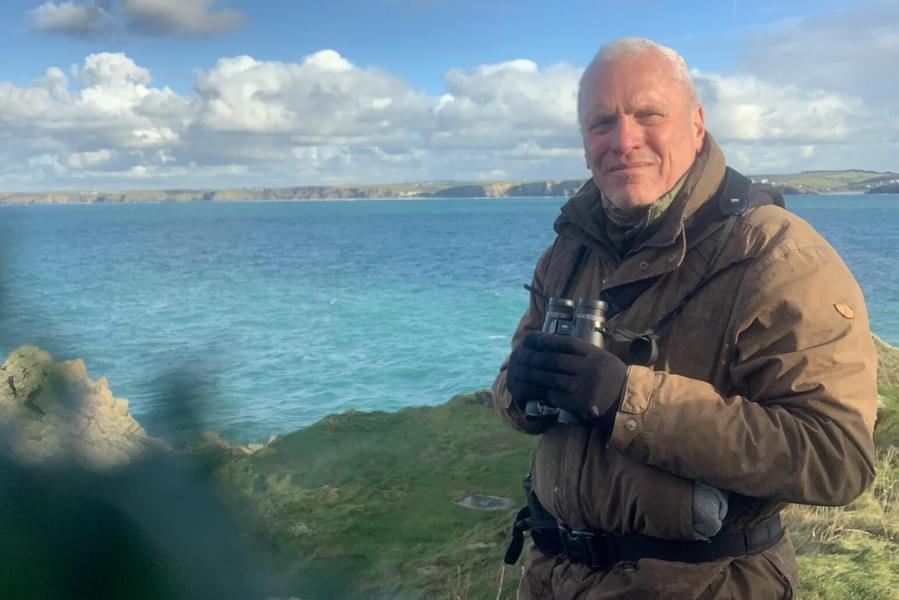This week ORCA Marine Mammal Surveyor, Terry uploaded his 500th ORCA OceanWatchers survey. Since 2021 Terry has been using the ORCA OceanWatchers app to carry out surveys in his local area along the Cornish coastline as well as further afield with trips to Baja California and Dominica. We spoke to Terry about this amazing achievement.
What do you like most about using the ORCA OceanWatchers app?
I love the app! My wife, Charlotte (who is also an ORCA Marine Mammal Surveyor) and I have been using it since 2021, when we were among a small group of Marine Mammal Surveyors asked to trial it before its release. It has been tweaked and improved since then. It now has comprehensive coverage, in terms of species, such that we were able to use it in Baja California last year. It is easy and convenient to use, and we can see that the surveys that we record are making a real contribution to cetacean conservation. I love that I can refer back to previous surveys, compare year on year, or just enjoy the memory.
Where do you conduct your OceanWatchers surveys?
Most of the surveys are close to home around Cornwall but mainly the north Cornwall coast, and particularly Newquay. There are a small number that are more exotic though… Baja California, Dominica, the Bay of Biscay and the Orkney Islands. Baja added blue whales, gray whales and sea lions to my species list; Dominica added sperm whales, pantropical spotted dolphins and Clymene dolphins.
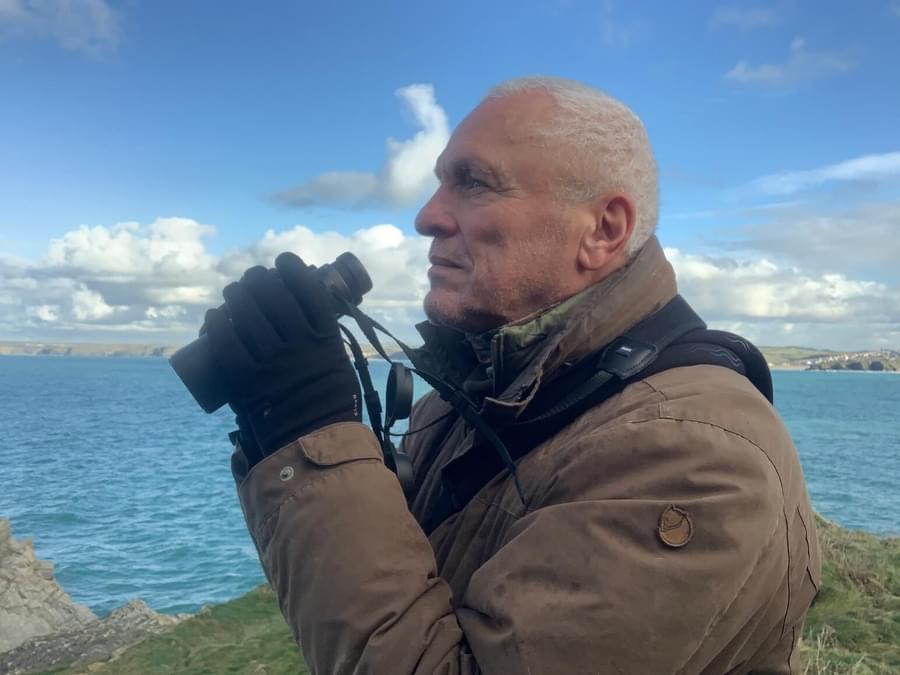
Where has your most memorable land based survey been?
One of the places that I go to often is Carnewas, just across the bay from Newquay. In January this year I walked past Bedruthan Steps and on to Park Head. This walk was over 3 hours long and I saw an amazing 15 harbour porpoises, a pod of a dozen common dolphins, two grey seals, and a humpback whale! We have a local photo catalogue of humpback whales in Cornwall now, there were seven different humpbacks seen around Cornwall or the Isles of Scilly last winter, three of which were seen around Newquay.
Where has your most memorable survey been at sea?
Without a doubt Dominica! While in port on a Saga cruise to the Caribbean in February this year, I went on a whale watching trip with Charlotte and Jan, two other ORCA Marine Mammal Surveyors. As well as Clymene, pantropical and Fraser’s dolphins we were treated to awesome views of nine sperm whales, including calves. One of my photos from that day has been used in ORCAs most recent State of Cetaceans Report. We also saw a male short-finned pilot whale and were told by our guide that he was lurking around a pregnant sperm whale, waiting for signs that the birth was imminent, when he would call in the rest of the pod with the intention of taking the calf. We had no idea that pilot whales preyed on sperm whales, so this was an incredibly interesting behaviour to witness.
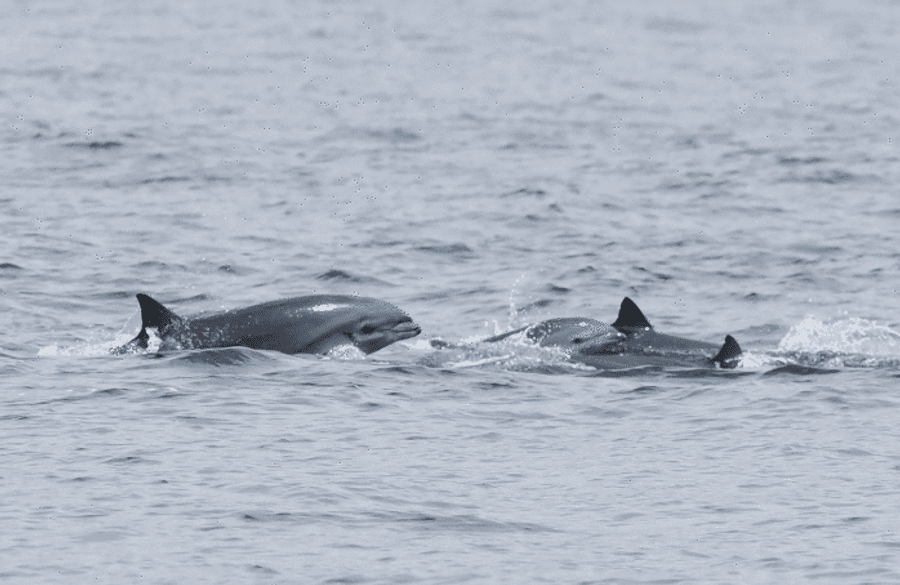
What has been your sighting highlight?
The sperm whales in Dominica. It was a fantastic experience, and shared with two very special people (Marine Mammal Surveyors, Charlotte and Jan)! The whale watching trip we had booked onto used a small boat (with only six guests in total), the boat looked perhaps a little shabby but our skipper and one-man crew were brilliant, sympathetic to the whales and knowledgeable.
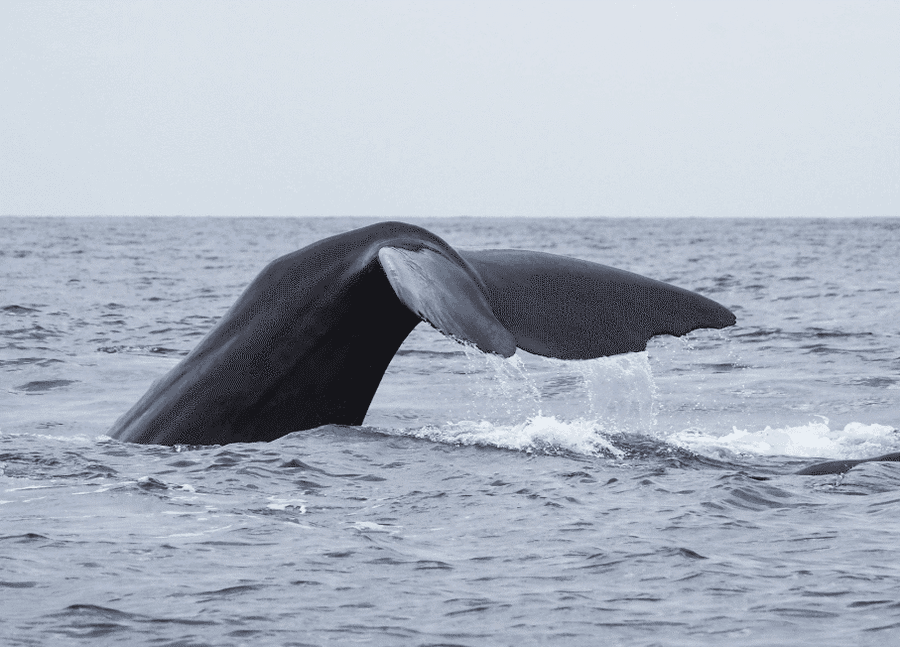
Any idea how many animals and different species you have recorded whilst using OceanWatchers?
I thought it would be interesting to look into some of the numbers. The total time I have spent surveying to date is 685 hours and 23 minutes, and I have recorded a total of 9,033 animals! The species I have recorded most frequently are common dolphins, with 6,900 being recorded. Other species highlights include 375 harbour porpoises, 29 humpback whales, and ten blue whales.
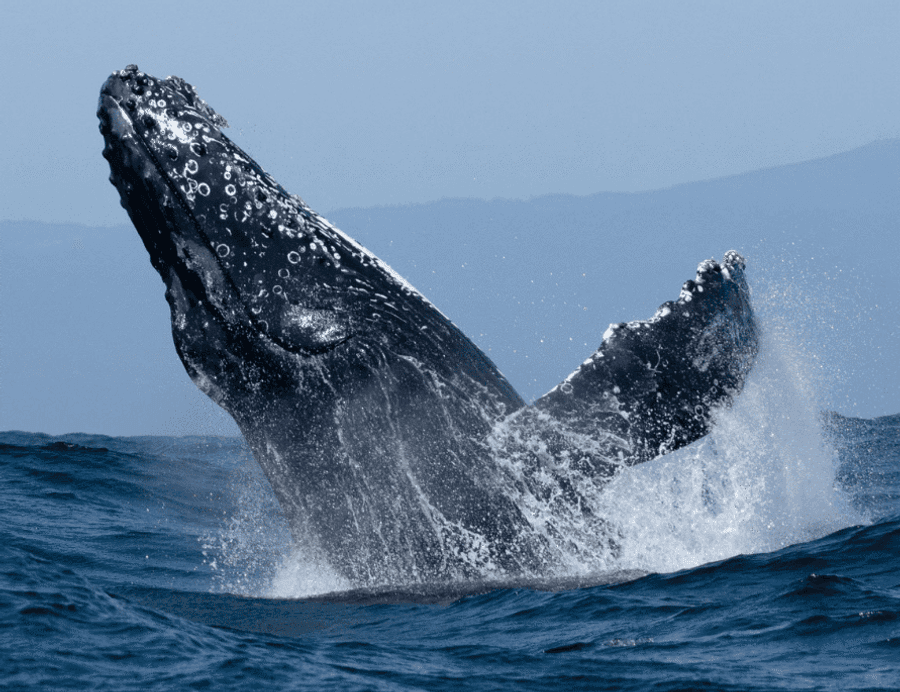
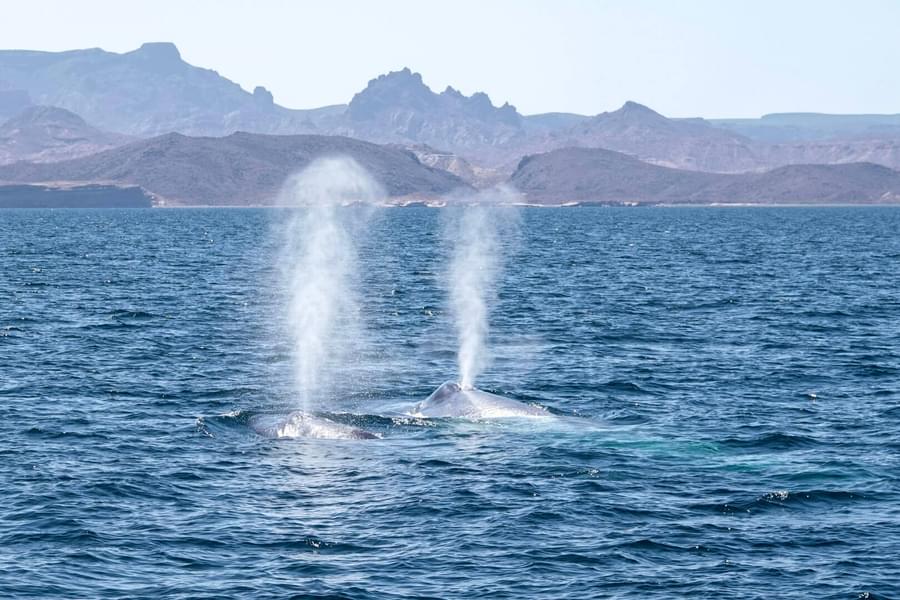
Is there anywhere you are looking forward to using OceanWatchers in the future?
Easy one this! My wife, Charlotte and I are booked onto a trip in the summer to Svalbard, via Iceland and Greenland, and we will certainly use OceanWatchers throughout that trip to record the whales and dolphins we see.
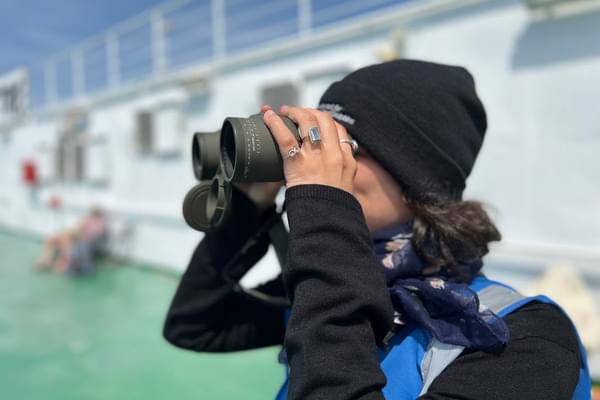
Citizen science is at the heart of everything we do and this year we have made it even easier to get involved in whale and dolphin conservation with our brand new e-learning courses. These new courses are the perfect introduction to the world beneath the waves and will teach you everything you need to know about spotting, identifying and recording vital scientific data on these incredible animals so that you too can help ORCA's conservation work. Courses are live today so visit learn.orca.org.uk to find out more and start your journey to helping us protect whales and dolphins around the world.

